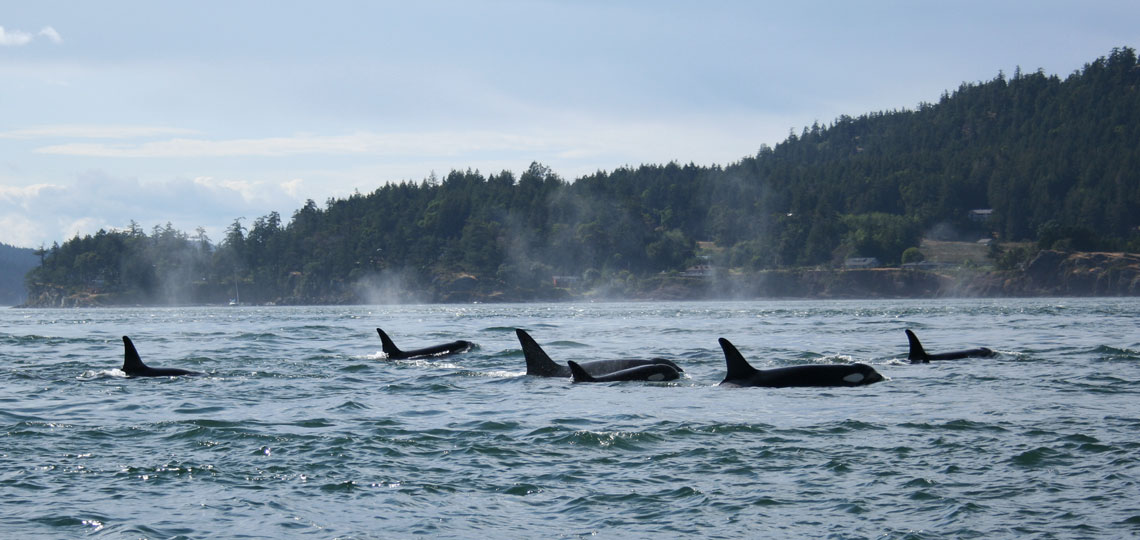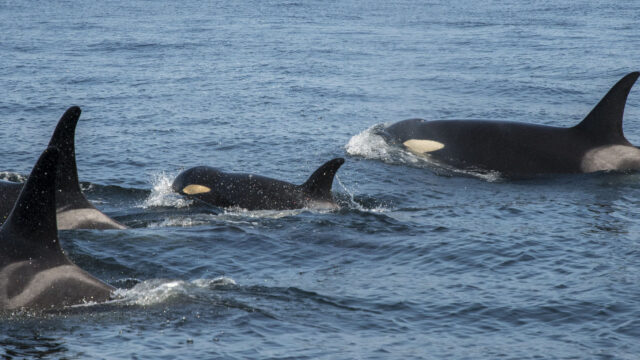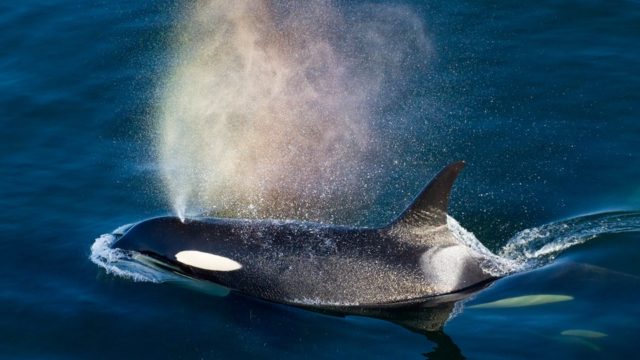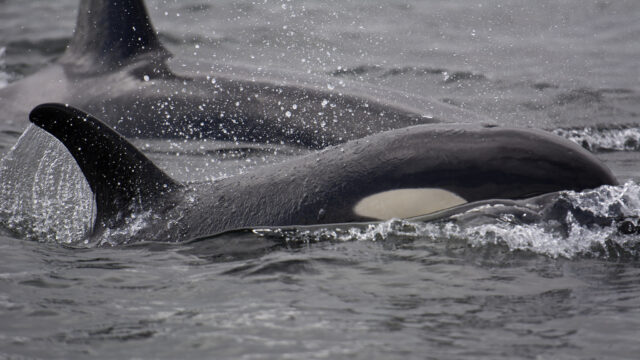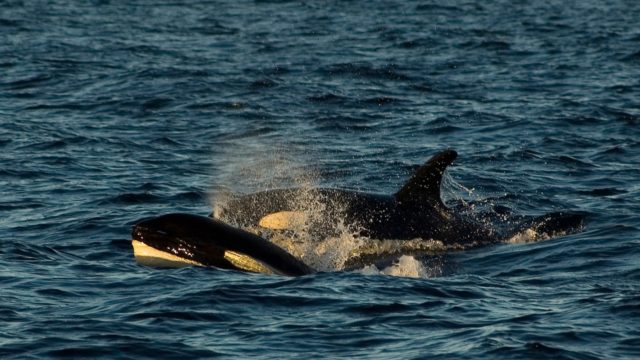Learn about “the grandmother effect” – and how you can take action today to protect endangered Southern Resident killer whales.
Mothers, grandmothers, and great-grandmothers are at the heart of Southern Resident killer whale families.
As they age, female Southern Residents play an essential role as knowledge keepers. They know where to find Chinook salmon, the orca population’s favourite food, and what time of year to hunt there. And they help their children and grandchildren navigate the waters of the Salish Sea, off the coast of British Columbia, by communicating in specialized dialects.
That’s why Southern Residents live in tight-knit family units based on matrilineal relationships. A great-grandmother or grandmother orca will stay close to her daughter and her daughter’s offspring, forming an immediate family. Male orcas also stay close to their mothers for life.
Groups of these smaller, immediate families, form “pods,” which share female relatives further up their family trees. In total, there are three Southern Resident pods: J, K, and L.
The “grandmother effect”
In December, The Washington Post published a story about J 19, or Shachi, a Southern Resident killer whale journalist Jason Bittel admiringly referred to as “a boss.”
Shachi was born in 1979. In 2005, she gave birth to J 41, also called Eclipse. And in 2015, Eclipse gave birth to J 51, Nova, Shachi’s grandson.
Click here to view a 2019 graphic of J-Pod family trees, via CBCNews.ca.
As Bittel wrote, Shachi played a major caregiving role in raising Nova. Shachi helped make sure Nova made it through his early years, even though Chinook salmon, the Southern Residents’ main source of food, were scarce at the time of Nova’s birth and Nova’s mother, Eclipse, was still young and inexperienced.
Scientists call it “the grandmother effect” – and it has a real, measurable impact on killer whale survival.
According to a 2019 study, grandmothers are so important to killer whale families that “the death of a grandmother reduces the survival of her male and female grand-offspring in the two years following her death.”
This is one reason, the study’s authors wrote, why female Southern Residents live so long – and why they, like humans, are one of the few species which undergo menopause. The study found grandmother killer whales that are beyond the breeding stage of their life are “more effective helpers” for younger whales.
“Grandmothers bestow a survival advantage on their grand-offspring,” the authors found.
Fighting for the newest member of the Southern Resident family
In February, the Center for Whale research captured images of the newest member of the Southern Resident family: L125, born to mother L86.
The Southern Resident killer whale population has been in decline since the mid 1990’s, so any new calf is a sign of hope. With L125’s arrival, there are now 75 Southern Resident killer whales, split between J, K, and L pods. But the future of these whales remains in the balance.
Scientists say there are three main threats to Southern Residents: a lack of Chinook salmon, underwater noise and vessel traffic, and pollution in the waters where they live.
Right now, Ecojustice is challenging a project that could make the first and second problems even worse. The Robert’s Bank Terminal 2 project, also known as T2, is a proposed shipping container terminal expansion, located at the mouth of B.C.’s Fraser River.
If built, T2 will increase the number of ships crossing through Southern Resident killer whale habitat, creating more physical and acoustic obstacles for the whales. The project also threatens Chinook salmon migration. This, in turn, could harm Southern residents further up the food chain by making their primary source of food even scarcer.
That’s why Ecojustice is asking you to send a letter to Minister of Fisheries and Oceans today, urging him to protect wild salmon and endangered killer whales by saying no to the T2 project.
Southern Resident killer whales have close-knit families, complex social structures, and incredible methods for protecting their families by communicating and passing down knowledge. But this incredible species needs our help.
Please, take action today to protect the Southern Resident killer whales – from grandmothers like Shachi, to newborn calves like J125.
This piece was written with contributions from Emily Chan, of the Ecojustice communications team.

